March 20, 2025
Table of Contents
AI has created a significant shift in the business world in recent years, becoming a strategic area for investment. Especially generative AI helps companies develop innovative solutions, increase efficiency, and gain a competitive advantage. As organizations adopt this technology in different departments, some are directly integrating it into production processes to make better use of the opportunities AI offers. However, this transformation also brings new security risks and concerns regarding data management. Here are some important data points that highlight the impact of generative AI on the business world and its potential for the future…
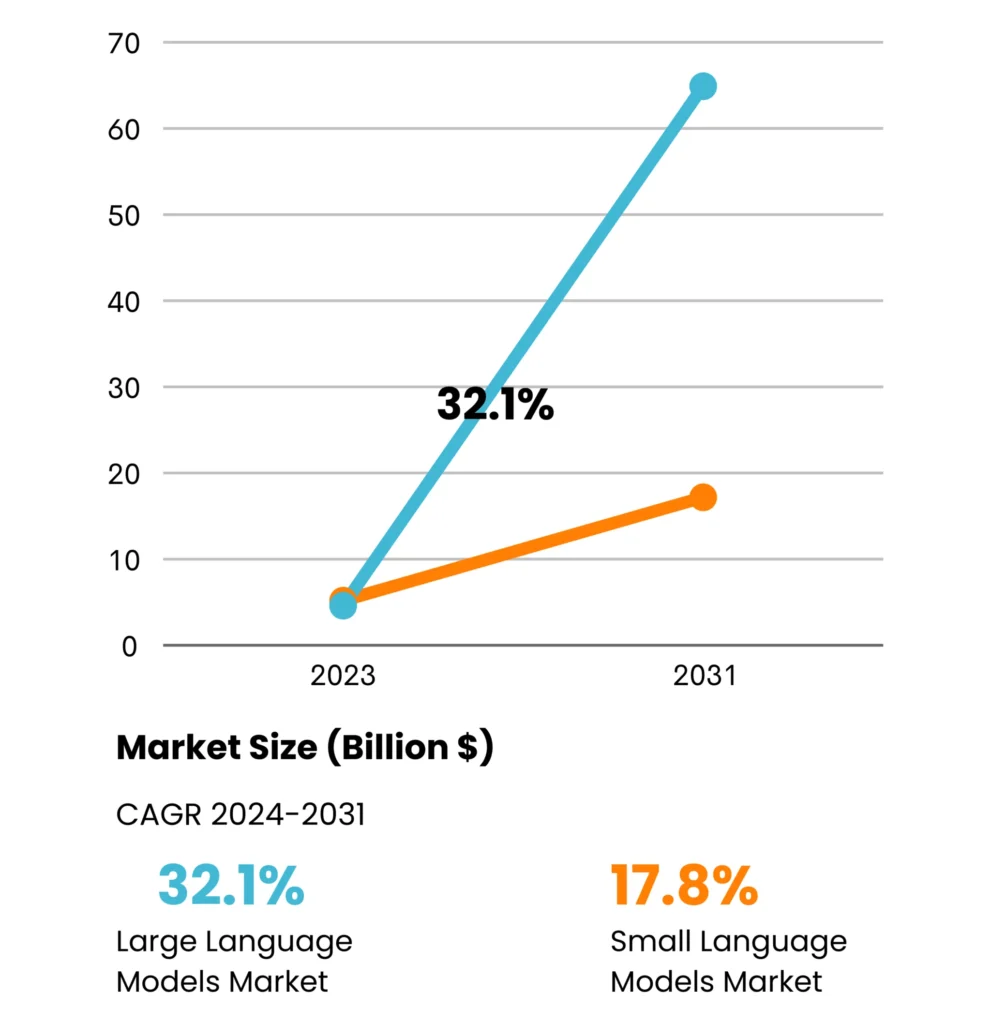
The Exploding Markets of Small and Large Language Models
These statistics indicate that language models will create a rapidly growing market in the coming years and become a strategic investment area for businesses of different scales. Small language models provide cost-effective solutions in the private sector, while large language models accelerate transformation in the AI field with their broader and more versatile applications. The chart illustrates that the compound annual growth rate (CAGR) for the large language models market is 32.1% from 2023 to 2031, whereas the small language models market has a growth rate of 17.8%. This suggests that large language models will play a more dominant role in the AI ecosystem in the future and gain wider adoption in the business world.
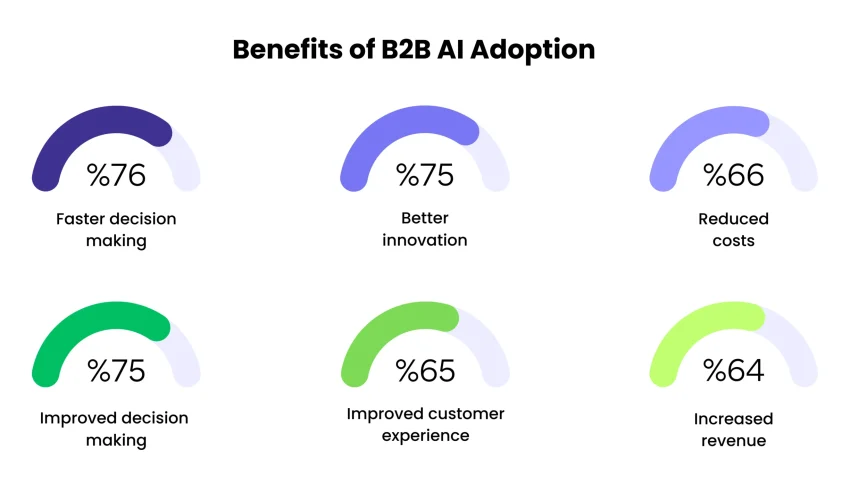
Benefits of B2B AI Adoption
As shown in the graph, artificial intelligence offers many advantages to businesses. Better innovation processes, faster decision-making, improved decision-making mechanisms, and increased revenue stand out among these advantages. AI enables more accurate decisions by analyzing big data, while also accelerating the process of developing innovative solutions. This allows companies to gain a competitive advantage while seizing the opportunity to increase their revenue.
Industry Growth Trends
Artificial intelligence will experience significant growth across various sectors between 2024 and 2030. The food industry will grow from $9.56 billion to $39.4 billion, the retail sector from $9.36 billion to $85.07 billion, the packaging industry from $2.98 billion to $8.67 billion, and the manufacturing sector will rise from $5.94 billion to $230.95 billion by 2034. The rapid growth in these sectors highlights the increasing impact and importance of AI across more industries.
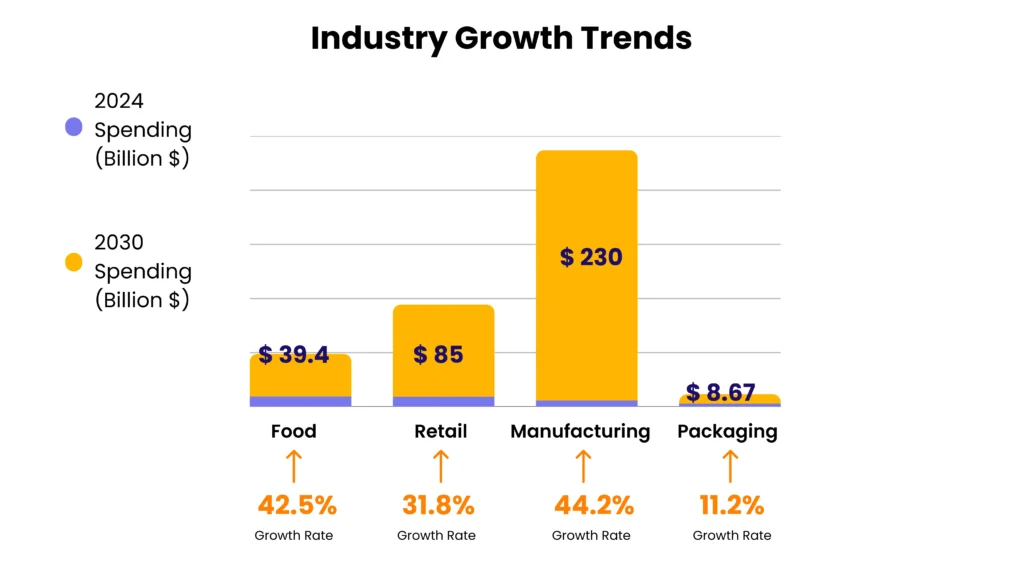
Generative AI Employee Concerns
Survey results reveal not only the opportunities presented by generative AI but also the uncertainties it creates for employees. A significant portion of participants face a lack of knowledge regarding the use of reliable data sources and the protection of sensitive data, while concerns about the accuracy and impartiality of AI outputs also emerge. In particular, the proportion of those who believe that generative AI introduces new security risks (73%) indicates that this technology needs to be managed in a controlled and informed manner.
These findings carry a clear message for companies: To fully capture the productivity gains offered by AI, it is essential to increase employee trust in these processes. Transparent data management, algorithms aimed at reducing bias, and training programs play a critical role in unlocking the potential of generative AI in the business world more effectively.
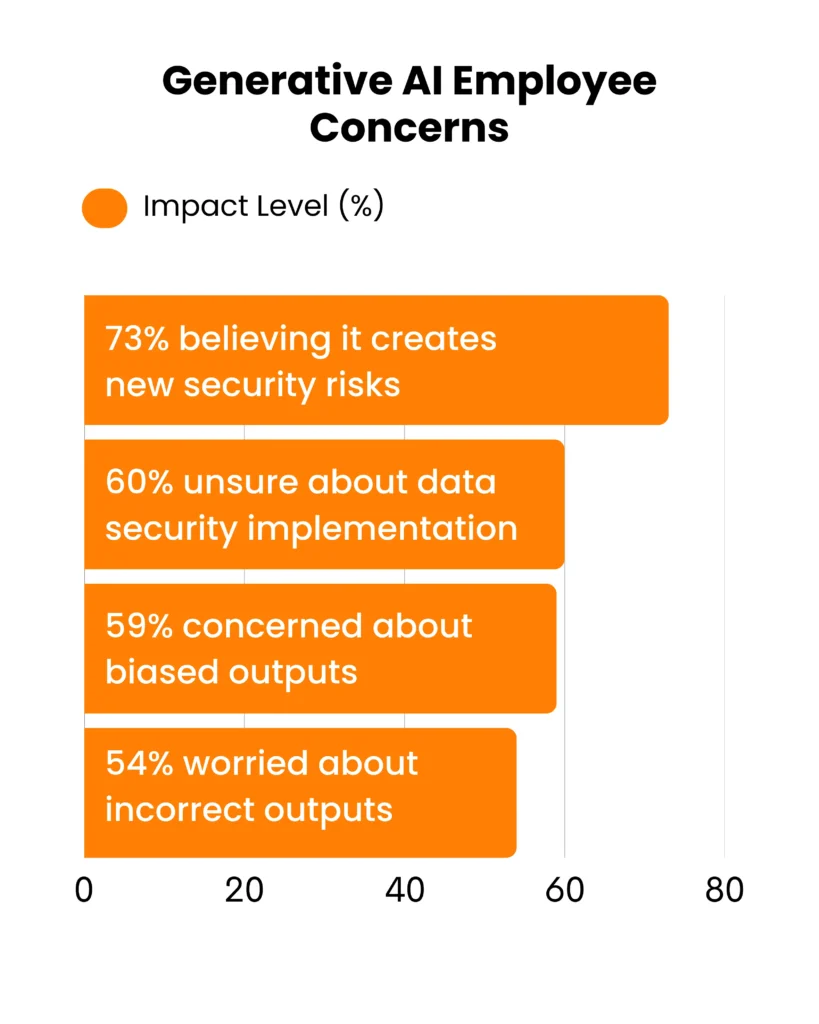
The Rapid Rise of Generative AI in Business Over the Past Year
In the last year, the adoption of productive AI has grown rapidly in many departments, especially IT, risk management, logistics and customer service. There is also remarkable growth in strategic areas such as finance, human resources and R&D.
This trend shows that AI is being adopted not only in technical but also in broader functions such as marketing and sustainability. It is more important than ever for companies to adapt to this transformation and adapt their employees to AI.
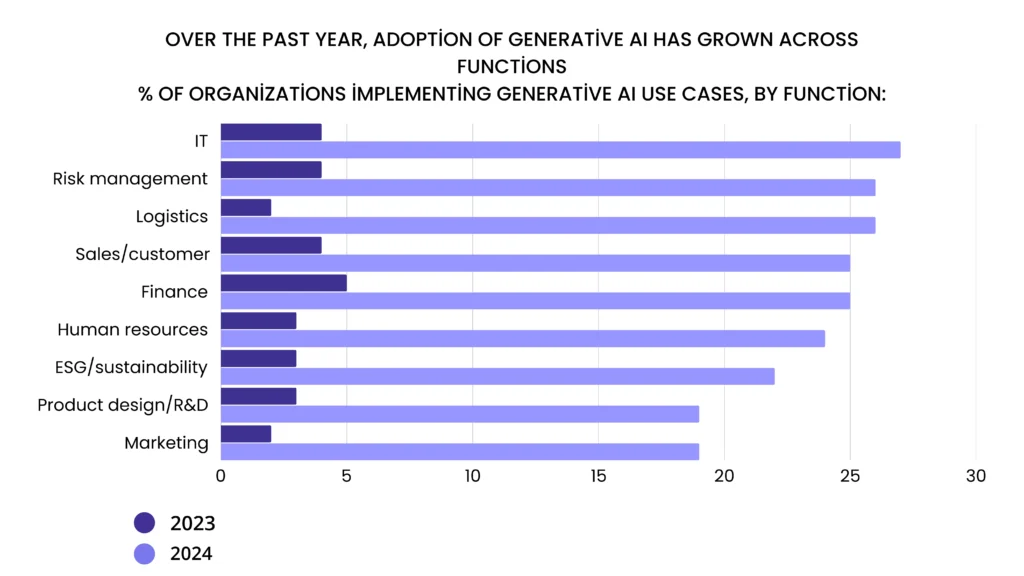
Widesperead GenAI Adoption
Generative AI has moved from being an experimental technology to playing an active role in business processes. Companies are using GenAI in different departments, while some are integrating these solutions directly into production. At the same time, the increase in investments shows that businesses are adopting AI as a long-term strategy. This transformation offers significant opportunities for companies looking to gain a competitive advantage while increasing efficiency and innovation.

